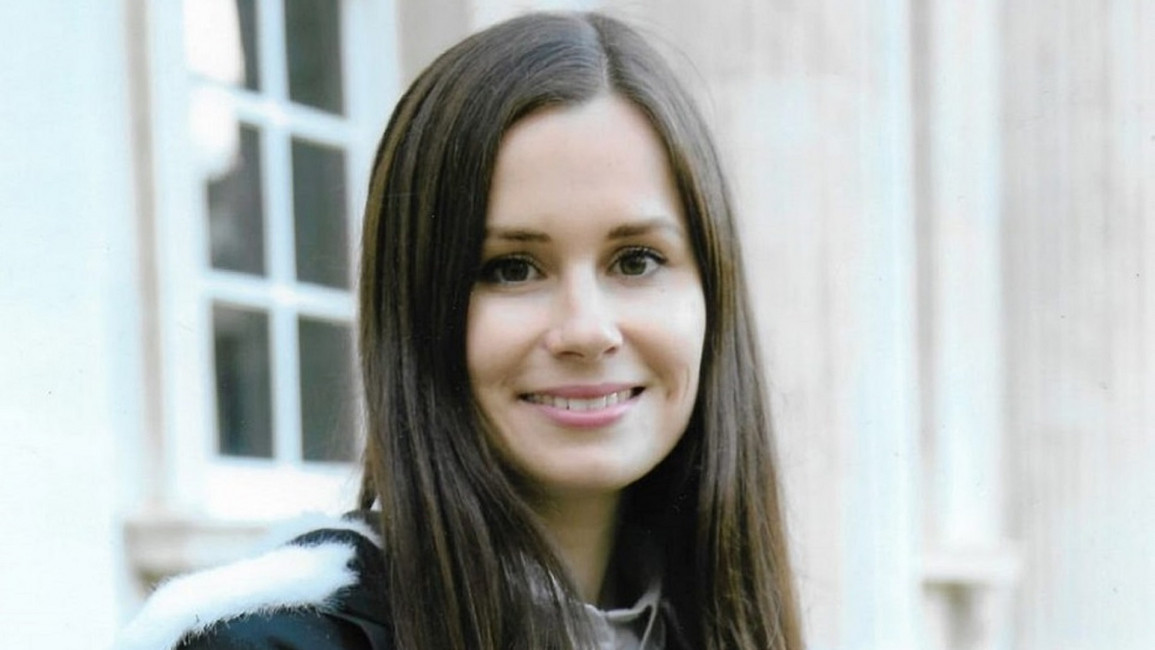Dilemma for West over foreigners jailed in Iran
Western governments face a growing dilemma over how to secure the release of their citizens and dual nationals detained in Iran, with activists accusing Tehran of engaging in "hostage diplomacy" by seeking exchanges.
Iran has in recent years repeatedly detained foreigners and dual nationals on charges campaigners and governments say are unfounded, with the prisoners only going free after months and sometimes even years of painstaking negotiation.
The most recent high-profile releases of foreign prisoners in Iran - of American Xiyue Wang in December 2019, American Michael White in March 2020 and Frenchman Roland Marchal, also in March - were all accompanied by the release of Iranians held abroad on sanctions-busting charges.
But concern over the tactics intensified last month with the release of Australian-British lecturer Kylie Moore-Gilbert, who was freed in an apparent exchange for three Iranians convicted in Thailand over a 2012 bomb plot that Israel linked to attacks against its interests.
While sharing joy over Moore-Gilbert's release, activists fear that by agreeing to such exchanges foreign governments are only emboldening Iran to detain more foreigners and seek an even higher price for their liberation.
"For the past years it has been clear to us that what we have been witnessing is nothing other than hostage taking," said Hadi Ghaemi, executive director of the New York-based Center for Human Rights in Iran.
Twitter Post
|
"These kinds of negotiations will only encourage and embolden the hostage taking by the Iranian government," he told AFP.
Iran strongly rejects that foreign nationals are held as hostages, insisting they are imprisoned following a legal process by the judiciary in which the government is not able to interfere.
But speaking last week, Foreign Minister Mohammad Javad Zarif stated Iran was open to prisoner exchanges, saying if Iranian prisoners are released abroad "Iran is ready to reciprocate".
"We can do it tomorrow and we can even do it today," he told the Mediterranean Dialogues conference.
'A marathon'
But this puts foreign governments in a tricky position as they seek the release of prisoners.
They include American-Iranian Siamak Namazi, now held for over five years, British-Iranian Nazanin Zaghari-Ratcliffe, jailed in 2016 and now under house arrest, and French-Iranian Fariba Adelkhah, arrested in June 2019 and also now under house arrest.
Siamak Namazi's father Baquer, now 84, was jailed in 2016 after returning to visit his imprisoned son and still cannot leave Iran.
The latest dual national known to have been detained is German-Iranian woman Nahid Taghavi, 66, who according to her daughter Mariam Claren was arrested at her apartment in Tehran in mid-October and is now held in solitary confinement in the city's notorious Evin prison, with no reason disclosed for her detention.
Twitter Post
|
"I know it will be a marathon and not a sprint," Claren told AFP. "I do not expect that she will be back by Christmas."
She said that German diplomats had helped get medication to her mother through the prison authorities but added Berlin "has to do more".
"Berlin cannot ignore this human rights abuse and has to intervene," she said.
Asked about her feelings on prisoner swaps, Claren said: "Normally I would think it a bad deal to exchange innocent people for people who are imprisoned. But as the daughter of Nahid Taghavi I would, in her case, agree."
There also remains immense concern over the case of Ahmadreza Djalali, an Iranian-Swedish researcher who was sentenced to death on charges of spying.
His family fear Djalali remains at risk of imminent execution.
'No easy answer'
"We are in a dilemma, there is no easy answer," said Roya Boroumand, co-founder of the Washington-based Abdorrahman Boroumand Center that campaigns for human rights in Iran.
She said while foreign governments cannot allow innocent citizens to languish in Iranian jails, "someone who did not commit a crime is being exchanged for someone who did commit a crime."
After Moore-Gilbert's release the US State Department accused Tehran of "hostage diplomacy" while US Secretary of State Mike Pompeo last month urged Iran to halt "this grotesque hostage campaign."
Activists contend that the tactic has been ingrained into the political psychology of the Islamic republic almost since its inception, in the wake of the hostage-taking of staff at the US embassy in Tehran for 444 days from November 1979 to January 1981.
In 2009, the release of French student Clotilde Reiss, who had been held on espionage charges, was swiftly followed by the freeing in France of Ali Vakili Rad who had been convicted of the 1991 murder outside Paris of the shah's last prime minister Shapour Bakhtiar. Paris denied any link between their releases.
For Boroumand, the only sensible step is for foreign governments to warn nationals and dual nationals against all travel to Iran and thus prevent more people being arrested. "I do not see any other option."
Ghaemi said Western countries need to show a "united front and call this for what it is - hostage taking."
With Europe hoping incoming president Joe Biden will rejoin the 2015 deal on Tehran's atomic programme, "we cannot go back and just talk about the nuclear deal. Human rights has to be a major issue," he said.
Follow us on Facebook, Twitter and Instagram to stay connected



